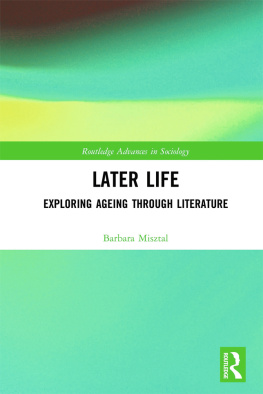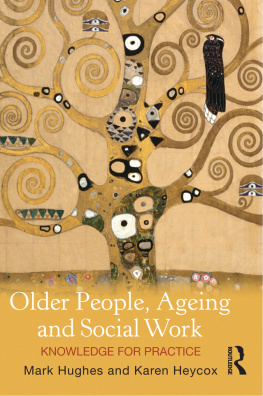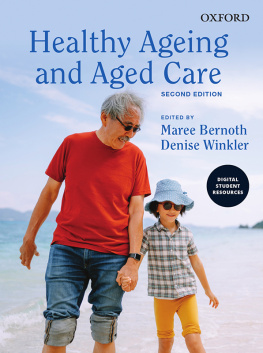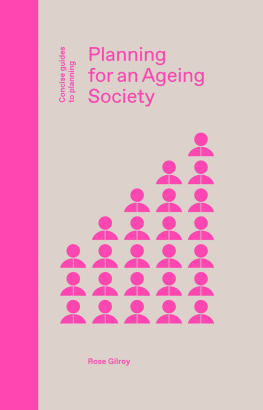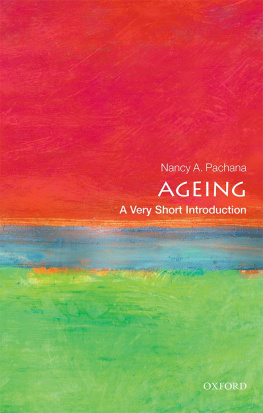Later Life
Later Life views older age as a valuable stage of life and argues for the centrality of self-making to the quality of later life. Aiming to enrich an understanding of ageing as the unfolding process in which people try to negotiate vulnerabilities of their bodies and manage mortality, it explores the conditions for pursuing the search for knowledge of oneself in later life.
This new book, with the help of literary examples, presents factors both supporting and hindering the quality of the experience of later life. It demonstrates how wondering, courage and habit sustain the self-making in older age. After illustrating that the process of ageing also imposes ordeals, the book depicts remedies needed to overcome boredom, bitterness and sadness, three torments caused by the age-specific sense of time.
It is essential reading not only for academics and professionals in age studies, sociology of ageing, gerontology and health care, but also for a general audience. The books focus on the experiences of later life will appeal to the reader interested in understanding the complexities of ageing and in enhancing the quality of later life, while its reliance on literary illustrations will be appreciated by lovers of literature.
Barbara A. Misztal is Emeritus Professor of Sociology at the University of Leicester. She is the author of a number of books, including Multiple Normalities (2015), The Challenges of Vulnerability (2011), Intellectuals and the Public Good (2007), Social Theories of Remembering (2003), Informality (2000), Trust in Modern Society (1996) and Action on AIDS (with D. Moss, 1990). Her current research interest is focused on the search for narratives that make sense of the public sphere.
Routledge Advances in Sociology
271. Cultures, Citizenship and Human Rights
Edited by Rosemarie Buikema, Antoine Buyse, Antonius Robben
272. Regional Cultures, Economies, and Creativity
Innovating Through Place in Australia and Beyond
Edited by Ariella Van Luyn and Eduardo de la Fuente
273. Care, Power, Information
For the Love of BluesCollarship in the Age of Digital Culture, Bioeconomy, and (Post-)Trumpism
Alexander I. Stingl
274. The Field of Water Policy
Power and Scarcity in the American Southwest
Franck Poupeau with Brian ONeill, Joan Cortinas Muoz, Murielle Coeurdray and Eliza Benites-Gambirazio
275. Impoverishment and Asylum
Social Policy as Slow Violence
Lucy Mayblin
276. Later Life
Exploring Ageing through Literature
Barbara A. Misztal
For more information about this series, please visit: www.routledge.com/Routledge-Advances-in-Sociology/book-series/SE0511
Later Life
Exploring Ageing through Literature
Barbara A. Misztal
First published 2020
by Routledge
2 Park Square, Milton Park, Abingdon, Oxon OX14 4RN
and by Routledge
52 Vanderbilt Avenue, New York, NY 10017
Routledge is an imprint of the Taylor & Francis Group, an informa business
2020 Barbara A. Misztal
The right of Barbara A. Misztal to be identified as author of this work has been asserted by her in accordance with sections 77 and 78 of the Copyright, Designs and Patents Act 1988.
All rights reserved. No part of this book may be reprinted or reproduced or utilised in any form or by any electronic, mechanical, or other means, now known or hereafter invented, including photocopying and recording, or in any information storage or retrieval system, without permission in writing from the publishers.
Trademark notice : Product or corporate names may be trademarks or registered trademarks, and are used only for identification and explanation without intent to infringe.
British Library Cataloguing-in-Publication Data
A catalogue record for this book is available from the British Library
Library of Congress Cataloging-in-Publication Data
Names: Misztal, Barbara A., author.
Title: Later life: exploring ageing through literature/Barbara A. Misztal.
Description: First Edition. | New York: Routledge, 2020. |
Series: Routledge advances in sociology | Includes bibliographical references and index.
Identifiers: LCCN 2019046800 (print) | LCCN 2019046801 (ebook)
| ISBN 9780815362258 (hardback) | ISBN 9781351112833 (ebook)
Subjects: LCSH: Aging. | Creative ability in old age. |
Well-being--Age factors.
Classification: LCC HQ1061 .M557 2020 (print) | LCC HQ1061
(ebook) | DDC 305.26--dc23
LC record available at https://lccn.loc.gov/2019046800
LC ebook record available at https://lccn.loc.gov/2019046801
ISBN: 978-1-351-11283-3 (hbk)
ISBN: 978-0-8153-6225-8 (ebk)
To all my grandchildren: Julian, Jasper, Harry and George
Contents
PART I
The pillars of later life
PART II
The ordeals of later life
Since one of this books aims is to expand our understanding of the complexities and ambiguities of growing old in modern Western nations, it is useful to start by pointing to the importance of cultural, social and economic features of the context in which the process of ageing takes place. Apparently, in todays Western Europe and Northern America, things look good for the older generation, according to a narrator in Henri Groens (2017) novel The Secret Diary of Hendrik Groen, 83 1/4 Years Old: Old is in. The growing concern with old is reflected in the increasing amount and variety of discourses, testimonies, works of fiction and films about what it means to grow old and about opportunities and challenges in later life. It also manifests itself in the rising number of public debates and studies how to minimise the old populations impact on economies and how to incorporate the costs of social policies and medical care of the old into state budgets.
Many factors account for todays heightened interest in the older generation. Among them are the demographic changes chiefly brought about by the greater life expectancy, the first baby boomers reaching retirement age, the increased visibility of older people at the labour market, the voluntary sector, and leisure activities and travel adventures. As a result of advances in science and medicine, together with processes of globalisation, digitalisation and migration, the process of ageing in Western societies has become not only more visible but also more complex and diversified. The transformations in cultural, social and economic contexts, alongside those of individual characteristics such as gender, ethnicity, economic status and education, have impacts on the condition of ageing and the quality of later life. Moreover, the changing situation of older people in North America and in Europe is now more than ever reflected in cultural narratives and social media presentations. The new environment not only reflects the increase in the visibility of the aged population and its changes but its discourses also shape peoples visions of ageing.
It is therefore essential to explore to which degree the recent increase in the plurality of scenarios for later life and the diversity of narratives about ageing have been helping to counter the negative attitudes, images and stereotypes of the old. For sure, the emergence of the cultural dimension in the analysis of age and ageing, which has been the most significant development in age studies in recent decades, has revealed multiple meanings and alternative ways of becoming and being old (Gullette 2015; Honore 2018). Today, alongside official rhetoric and media discourses on ageing, which continue to provide an impoverished language for understanding old age, we observe the popularity of alternative narratives of old age which offer more comprehensive, complex as well as more optimistic images of ageing (Marshall 2015). These narratives of ageing foster positive visions of later life where nothing is to be feared and where one may expect some exciting, active and liberating types of activities and engagements. In these alternative discourses, the experience of ageing is seen as being rewarding and liberating for people, while later life is viewed as full of opportunities for self-fulfilment, useful commitments and well-being. Such conceptualisations of ageing is often criticised for making many false promises, for embracing the impossible goal of growing without ageing, for a lack of coherence and for overstating the older persons understanding and acceptance and their respective situations (Katz 2003). Yet they have contributed to the current rejection of the metaphor of old age as decline and to the adverse evaluation of many too simplistic visions of productive or successful ageing (Gullette 2015). Moreover, the proliferation of the variety of modern discourses of ageing offers a pluralistic cultural platform through which many older people can negotiate their identities and their visions of ageing (Marshall 2015). Although the dominant message still seems to be that older people should actively pursue active ageing, mostly understood as economically productive ageing, the adoption of healthy lifestyle and the prizing of ageless appearance (via fitness, clothing, cosmetic management) (Tulle 2015: 128), the increased plurality of discourses about ageing and the growing number of alternative models of ageing are slowly transforming our cultural narrative of ageing.

